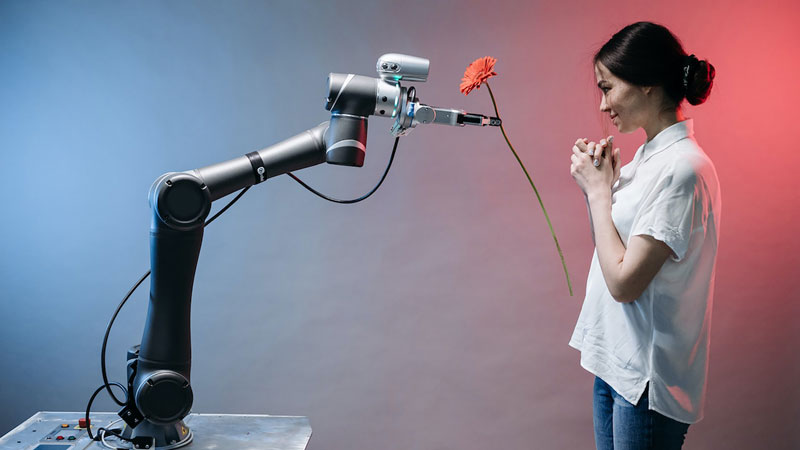In the rapidly advancing era of artificial intelligence (AI), there’s been a rising concern about whether machines will replace humans in various domains. While AI has undoubtedly brought transformative advancements, there are distinctive human skills that remain irreplaceable. In this blog, we will delve into the question, “Will artificial intelligence replace humans?” and highlight several essential human skills that AI cannot replicate.
Human Skills which AI Can’t Replace
The rise of artificial intelligence has undoubtedly revolutionized numerous industries, but the fear of human replacement is largely unfounded. Some of the human skills cannot be replicated by AI. Rather than fearing the advancements in AI, we should embrace them as tools that augment human capabilities, allowing us to focus on what we excel at – leveraging our unique qualities to innovate, connect, and shape a better future.
Emotional Intelligence
AI may possess extensive data analysis capabilities, but it lacks the essential human trait of emotional intelligence. Empathy, understanding, and the ability to navigate complex social interactions are unique to humans. From customer service to leadership roles, human beings excel in interpreting emotions and responding appropriately, which creates meaningful connections and fosters trust.
Example: Picture a customer service scenario where an upset customer seeks assistance. An AI-powered chatbot might provide scripted responses. But a human representative can empathize with the customer’s frustration, offer personalized solutions, and provide emotional support. Ultimately turning a negative experience into a positive one.
Creativity and Innovation
While AI can generate impressive results by analyzing vast amounts of data, it lacks the ability to truly innovate or think outside the box. Creativity, imagination, and intuition are inherent to human intelligence, enabling us to solve complex problems, design innovative products, and envision new possibilities.
Example: Consider the field of advertising, where creating captivating campaigns requires more than just data analysis. Humans possess the creative flair to craft compelling narratives, engage emotions, and develop unique concepts. These resonate with audiences on a profound level, leading to greater impact and success.
Complex Decision-Making
AI excels in data-driven decision-making, but when faced with uncertain, ambiguous, or unprecedented situations, human judgment becomes indispensable. Humans possess the ability to weigh diverse factors, consider ethical implications, and apply context-specific knowledge to arrive at nuanced decisions.
Example: Imagine a medical scenario where a patient’s symptoms are perplexing. No clear diagnosis can be made based solely on data analysis. In such cases, human doctors leverage their expertise, intuition, and experience to make informed decisions that account for the unique nuances of the patient’s condition, potentially saving lives.
Adaptability and Learning
Human beings possess remarkable adaptability and a capacity for continuous learning. We can acquire new skills, apply existing knowledge in novel ways, and adapt to changing circumstances swiftly. This flexibility enables us to navigate unpredictable environments, embrace new technologies, and innovate.
Example: In the dynamic world of cybersecurity, threats evolve rapidly. While AI can detect patterns and mitigate known risks, human cybersecurity professionals possess the ability to identify emerging threats, adapt security measures, and proactively respond to sophisticated attacks, staying one step ahead of potential breaches.
Ultimate Takeaway
While AI has revolutionized industries, the fear of it replacing humans is unfounded. AI lacks essential human skills like emotional intelligence, creativity, complex decision-making, and adaptability. Humans should embrace AI as a tool that enhances our abilities, allowing us to innovate, connect, and shape the future. It’s about finding a balance between AI and human collaboration to drive progress and create a harmonious coexistence between humans and intelligent machines.
